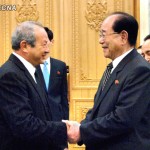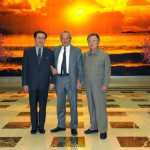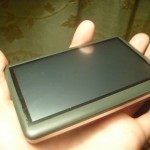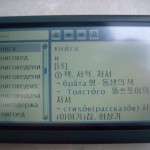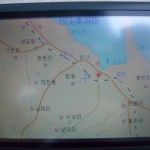By Benjamin Katzeff Silberstein
A couple of days ago, Korea Times ran an interesting interview with Kim Young-hui of Korea Development Bank (KDB), on the prospects of commercial and mobile banking in North Korea. Kim was optimistic regarding the prospects for mobile banking to take off soon in North Korea:
“I think it could happen in the near future, within a year at most,” said Kim, Senior Research Fellow at KDB’s Korean Peninsula New Economy Center.
Kim’s forecast is based on the latest edition of the North Korean quarterly journal Economic Research, issued in June, which was about establishing a mobile banking system for smartphone users. The contents of the quarterly were reported by Yonhap.
“A commercial bank should be established first to enable customers to use mobile banking services,” she said. “Once it is established, individuals will be able to make transactions through their smart phones through their own bank accounts.”
In North Korea, the concept of individuals opening a bank account is alien.
Most of North Korean residents deposit their money with individual money traders, making it hard for the North Korean regime to account for the money it prints, Kim said.
Although North Korea established the Commercial Bank Law in 2006, it still does not have a separate commercial bank regulatory system. There are some “commercial” banks, but they only deal with foreign currency, not domestic currency, Kim said.
The Commercial Bank Law enables loan services for individuals, while working with domestic currency as well as foreign currency.
North Korea under Kim Jong-un is now trying to open up to the global economy as he declared in November that the completion of nuclear weapon development left him with one mission of economic development in his Byeongjin policy.
The new smartphone-based financial service would enable North Korean residents to check (their) bank accounts, withdraw cash, transfer money as well as pay at shops. The tool is a smartphone, an “indispensable information communication tools.”
The report also urged the mobile telecommunication organizations in the country to establish a communication infrastructure that can provide information on the purchase of goods while notifying financial transactions to mobile banking users. The infrastructure, once established, will also enable confirming of payments and settlements to both buyers and sellers.
“Unlike other countries where a series of steps have been taken before introducing mobile banking, North Korea is skipping them since smartphones are already prevalent in the country,” the researcher said.
The report also proposed the development and introduction of RFID (Radio Frequency Identification) and NFC (Near Field Communication) technologies as well as the installation of necessary devices to make payment using smart phones at stores and other facilities more quick and accurate.
Full article and source:
‘North Korea will soon open commercial bank, mobile banking’
Jung Da-min
Korea Times
2018-08-01
A few thoughts on this:
First, on methodology, I’m not entirely convinced that one can or should read the North Korean journal that this assessment is based on, Kyungje Yungoo (경제연구) as a blueprint for what policies are in place or will come in the future. For years, and particularly under Kim Jong-un, the journal has run a multitude of articles on private incentives and profits within enterprises and firms, and on topics such as the role of various technologies within the economy, with no large-scale, public policy announcement following. To be sure, much has already changed in the economic realm within most spheres of what the journal covers, but there doesn’t seem to be a clear line between articles there and consistent, thorough changes in economic management. Rather, Kyungje Yungoo is perhaps best read as a map of what topics of conversation and debate (yes, debate) are acceptable in the academic and policy realms in the country. In other words, the regime is clearly thinking about commercial banking and ways to make it work, but that doesn’t mean it’s necessarily on the horizon in the immediate future (which it could well be).
Second, on the issue itself: North Korea’s financial sector is seriously underdeveloped. The lack of a solid banking system is a huge stumbling block for economic development, as assets that could otherwise be used to fuel growth through investments often sit idle. (For those interested in the issue, I wrote about it in this report for the Center for a New American Security a couple of months ago). Part of the problem is that even if the state did take initiatives to create some form of commercial banking sector, public trust in the state is deeply eroded. The government isn’t really an entity that most people want to hand their hard-earned savings to, because economic policy has historically been so erratic and often changes on a whim. Look, for example, at the market crackdowns of the past few months. Much is done by decree and order rather than by law. And the laws that do exist don’t really mean much if there’s no credible mechanism to enforce them. Should the government institutions simply allow for the institutionalization of private, commercial banking, rather than participate in the game themselves, that would be a different story, but the history of economic development in North Korea shows that that’s usually not how things work.
Third: it does make sense that there could be a lot of leap-frogging in sectors like banking in North Korea, given the increasing prevalence of smartphones and other technology. So there’s certainly room for optimism here too.

